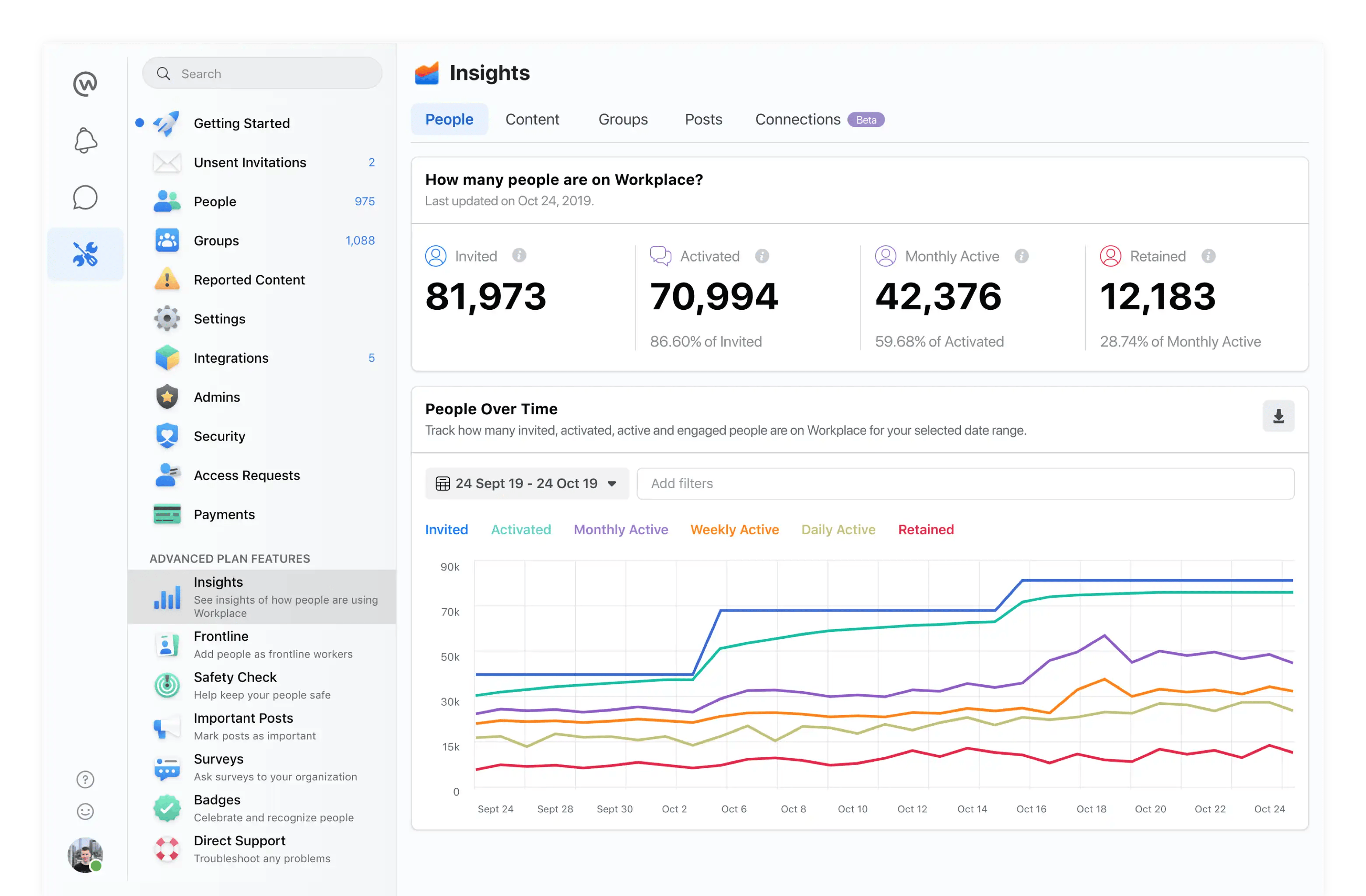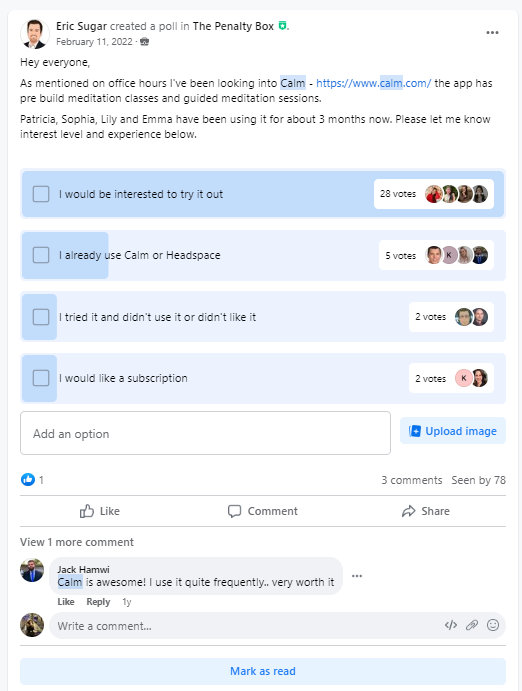Over the past few years, the conventional workspace has undergone a continuous transformation, driven by the inevitable influence of emerging technologies. These technological advancements are actively shaping the trajectory of the future of work, revolutionizing how we collaborate, communicate, and innovate within professional environments.
According to Statistics Canada, the post-pandemic work-from-home paradigm has altered the workplace in combination with new emerging technology creating easier ways to maintain and expand virtual collaboration and productivity. As the constant evolution of emerging technologies and virtual communication tools is shaping the future of work, it highlights the importance of keeping up with the trends and ensuring you are getting the most out of your experience.
In this blog, you will find ten future work trends shaping our professional world, driven by technological and societal evolutions.
In this blog, you will find:
10 Work Trends to Watch in 2023 and Beyond
1. 💻 Embracing the Rise of Hybrid Workspaces
2. 🤖 Embrace the Automation Revolution
3. 🌌 The Metaverse as a New Frontier in Collaborative Workspaces
4. 👥 Focus on Employee Experience and Analytics
5. 🔄 Flexibility in Roles and Processes
6. ❤️ Emphasis on Healthcare and Wellbeing
7. 🛠️ Hiring Focused on Abilities Instead of Positions
8. 👁️🗨️ Increased Transparency within Companies
9. 🚀 Creating Success through Disruptive Change
10. 🌐 Clear Vision and Overall Mission
10 Work Trends to Watch in 2023 and Beyond
1. Embracing the Rise of Hybrid Workspaces
As hybrid work becomes a significant part of the future of work, it's gaining popularity and preference across diverse sectors. This creates an employee-centric workplace enabling their choice to work remotely, entirely in their office, or with a flexible mix. According to one report, globally, 16% of all employees are working remotely, whereas 62% have opted for working in a hybrid model. Only 22% of all employees work full-time from the office.
With hybrid work, employees have experienced several benefits:
- ⏰ Reduced time from commuting and lower travel expenses
- 😌 Better work-life balance, making employees encouraged to return to work with a positive outlook
- 👓 Improved productivity during work time due to a more flexible structure
As hybrid work becomes more popular and preferred among various industries, employers are compelled to emphasize the preservation of productivity, the adjustment and growth of corporate culture, and the exploration of fresh methods for collaboration both collectively and individually.
.jpg?width=999&height=667&name=Depositphotos_356433492_S%20(1).jpg)
2. Embrace the Automation Revolution
The development of innovations in technologies, specifically the rise of AI technology in combination with automation, will revolutionize how we work. Opportunities to capitalize on adapting these new forms of automation in the workplace can help companies become more productive and increase overall efficiency and costs within every industry. With the implementation of these new technologies within your workspace, it will also enable workers to learn new skills and practices and be ready to adapt alongside them. Automation, powered by AI, is a cornerstone in the evolving landscape of the future of work.
3. The Metaverse as a New Frontier in Collaborative Workspaces
Virtual reality (VR) is revolutionizing our approach to work, fundamentally altering how we collaborate, learn, and engage with tasks and colleagues within the workspace. By making use of technologies like virtual reality, augmented reality (AR), and holograms in practical applications, we can reshape the way we work. This involves designing environments that unite on-site, remote, frontline, and hybrid workers, leading to a transformative impact on mentoring and training approaches.

4. Focus on Employee Experience and Analytics
Fostering employee-centered workplaces has resulted in cultivating a favorable employee experience that significantly contributes to an organization's achievements. In light of evolving work dynamics and technologies, prioritizing the fulfillment of requirements across various departments and involving leaders has become crucial.
By incorporating appropriate equipment and software, employees can effortlessly attain a digital experience that enables them to access resources, uphold their sense of purpose, and sustain productivity, regardless of their location within hybrid and remote teams. Understanding your employees is an important part of this process and as a business, there is value in analyzing data and insights to understand new ways to reach your employees with various tools that are valuable to your team and create excitement for your employees.
Facilitating dynamic growth and fostering team involvement involves:
- 🏹 Harmonizing objectives and competencies with company assignments
- 👫 Strengthening company culture throughout the entire staff
- 💫 Maintaining perpetual adaptation in sync with your company's goals
By leveraging technologies to detect micro changes in employee behavior, predict employee turnover, and identify unhappy and actively disengaged employees, organizations can better manage their workforce and ensure that their employees are engaged and productive. Embracing these changes, companies are investing in employee monitoring tools and need to show the benefits of collecting this data. Some ways of doing this include better planning, logistics, and evaluation – and using positive results from monitoring to reward progress.

Image: Workplace from Meta Insights
5. Flexibility in Roles and Processes
Among the various trends within the workspace, flexibility in roles is one that the highest-value employers are embracing as it continues to provide workers with an environment to thrive and be highly efficient.
While embracing hybrid work arrangements or the choice for remote work stands as the most prominent method to provide this flexibility, other variations include:
- ⏳ Employee-customized work hours
- 📅 Varied work day start and end times
- 🌅 Possibilities for extended leaves during career pauses or sabbaticals
- 💰 Increased alternatives for paid time off
For business leaders, this highlights the importance of weighing how tasks and processes are suited to how they are executed. Virtual collaboration tools and resources may needed rather than traditional resources that were designed for employees all being in the same physical space.
6. Emphasis on Healthcare and Wellbeing
As remote work blurs the boundaries between professional and personal spheres, HR executives are paying more attention to employees' well-being and mental health. This emphasis on cultivating both employee health and overall well-being in the workplace is of paramount importance.
These have become more important to employees after the pandemic, and many organizations have been taking the initiative and adapting their benefits in many areas:
🚀 Career and purpose – companies are providing flexible work choices, learning opportunities, improved training, coaching, and clear paths to advancement.
🌍 Social – Ensuring equitable treatment and unity among remote, on-site, and frontline staff through robust communication, collaborative projects, shared resources, and virtual/in-person social events.
💰 Finances – Growing financial concerns outweighed job-related stress, health issues, and relationship matters combined as the leading source of employee anxiety according to PWC.
💰 Physical health – fostering and creating healthy habits in the workplace and offering additional support and resources to ensure that hybrid, remote, and on-site employees have an integrated healthy environment.
🧠 Mental wellbeing – Companies are taking deliberate actions to de-stigmatize mental health and have committed to the hybrid workplace by offering enhanced experiences and additional support for counseling.
❤️ Emotional wellbeing – The shift to remote work and the desire for improved work-life balance means leaders must lead with empathy and create environments that prioritize individuals over teams or tasks.

7. Hiring Focused on Abilities Instead of Positions
Role-based hierarchy is no longer an effective way to recruit employees for employment in the future. Recruiters need to understand the skills that are applicable in the future and decide to hire for career development and growth potential within their business.
The value of individuals and their capabilities have been proven to be more significant than their titles and the jobs they do. Furthermore, focusing on skills rather than on degrees can lead to a cost-effective approach for companies and help them to find the best candidates for the job while creating an inclusive workforce and identifying candidates possessing the precise skills and capabilities for the role.
8. Increased Transparency Within Companies
Within the constant and inevitable evolution of the workplace, leaders are continuing to look for ways that hybrid/flexible arrangements for an inclusive environment can foster participation and promote constant conversations for solution ideation. Therefore, it's important to implement more transparency within decision-making so employees are in the know and learn how they can play a part in the solution. It's important for business leaders and managers to illustrate clearer development paths, goals that are aligned, and communication that is vital for employee feedback.

9. Creating Success through Disruptive Change
The past couple of years have seen the definition of disruptive change within every organization. This has resulted in many workspaces shifting into uncomfortable environments and changing the way we work. By being adaptable, some organizations have found more efficient ways to collaborate through virtual tools and have produced creative responses within the business model. Exploring continuous tailored approaches will allow workplaces to empower productivity with the use of technology.
10. Clear Vision and Overall Mission
Overall, the organization that creates a clear focus on its mission and values will see the most success with internal wellbeing and health among employees and respond to the interests of all stakeholders. By highlighting the company's vision and mission statements, a clear focal point is established to encourage alignment among all employees to instill a purpose and sense of identity. This shared purpose drives increased productivity and efficiency throughout the organization.

Enabling seamless transparency and open communication from top to bottom among all employees will guarantee essential feedback and the efficient dissemination of information across hybrid, remote, and on-site working setups. This support transcends traditional workspace boundaries, fostering ongoing conversation that stimulates the emergence of fresh perspectives and innovative solutions.
The benefit of adapting to these future work trends includes creating a culture of transparency and open communication, enabling employees’ success, growth, and career development, and making your workplace more flexible and agile. Understanding these shifts and leveraging employee Experience Platforms ensures that your business is prepared for the future of work.
At LineZero, our commitment is to help companies navigate this transformation.
Are You Ready For The Future Of Work?
Do you want to embrace Virtual Reality and Mixed Reality for Business? As a trusted Meta for Work partner, LineZero is equipped to propel your company into the future!
Our team of experts will guide you through integrating VR and MR, navigating the Corporate Metaverse, and cultivating a vibrant corporate culture — from education to implementation.
Start your journey into the Metaverse — connect with us today!
Tags:
Future of WorkSeptember 01, 2023




Comments